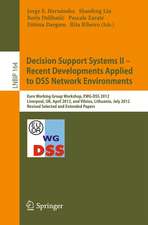Toward Information Justice: Technology, Politics, and Policy for Data in Higher Education Administration: Public Administration and Information Technology, cartea 33
Autor Jeffrey Alan Johnsonen Limba Engleză Hardback – 31 ian 2018
| Toate formatele și edițiile | Preț | Express |
|---|---|---|
| Paperback (1) | 716.42 lei 6-8 săpt. | |
| Springer International Publishing – 6 iun 2019 | 716.42 lei 6-8 săpt. | |
| Hardback (1) | 722.40 lei 6-8 săpt. | |
| Springer International Publishing – 31 ian 2018 | 722.40 lei 6-8 săpt. |
Din seria Public Administration and Information Technology
- 20%
 Preț: 689.21 lei
Preț: 689.21 lei - 18%
 Preț: 944.19 lei
Preț: 944.19 lei - 18%
 Preț: 1121.13 lei
Preț: 1121.13 lei - 15%
 Preț: 652.64 lei
Preț: 652.64 lei - 18%
 Preț: 1010.03 lei
Preț: 1010.03 lei - 15%
 Preț: 649.06 lei
Preț: 649.06 lei - 15%
 Preț: 638.57 lei
Preț: 638.57 lei - 20%
 Preț: 336.35 lei
Preț: 336.35 lei - 15%
 Preț: 650.04 lei
Preț: 650.04 lei - 15%
 Preț: 639.08 lei
Preț: 639.08 lei - 20%
 Preț: 562.85 lei
Preț: 562.85 lei -
 Preț: 386.22 lei
Preț: 386.22 lei - 18%
 Preț: 787.91 lei
Preț: 787.91 lei - 18%
 Preț: 783.20 lei
Preț: 783.20 lei - 18%
 Preț: 791.57 lei
Preț: 791.57 lei - 18%
 Preț: 958.07 lei
Preț: 958.07 lei - 15%
 Preț: 643.00 lei
Preț: 643.00 lei - 18%
 Preț: 1230.35 lei
Preț: 1230.35 lei - 18%
 Preț: 894.16 lei
Preț: 894.16 lei - 18%
 Preț: 784.13 lei
Preț: 784.13 lei - 15%
 Preț: 648.24 lei
Preț: 648.24 lei - 18%
 Preț: 778.45 lei
Preț: 778.45 lei - 18%
 Preț: 891.33 lei
Preț: 891.33 lei - 18%
 Preț: 1009.22 lei
Preț: 1009.22 lei - 18%
 Preț: 893.05 lei
Preț: 893.05 lei - 15%
 Preț: 646.62 lei
Preț: 646.62 lei - 18%
 Preț: 888.01 lei
Preț: 888.01 lei - 24%
 Preț: 754.46 lei
Preț: 754.46 lei - 18%
 Preț: 789.03 lei
Preț: 789.03 lei - 15%
 Preț: 637.59 lei
Preț: 637.59 lei - 15%
 Preț: 642.51 lei
Preț: 642.51 lei - 18%
 Preț: 797.55 lei
Preț: 797.55 lei - 15%
 Preț: 651.51 lei
Preț: 651.51 lei
Preț: 722.40 lei
Preț vechi: 880.98 lei
-18% Nou
Puncte Express: 1084
Preț estimativ în valută:
138.23€ • 144.71$ • 114.38£
138.23€ • 144.71$ • 114.38£
Carte tipărită la comandă
Livrare economică 05-19 aprilie
Preluare comenzi: 021 569.72.76
Specificații
ISBN-13: 9783319708928
ISBN-10: 3319708929
Pagini: 188
Ilustrații: XIV, 175 p. 1 illus. in color.
Dimensiuni: 155 x 235 mm
Greutate: 0.45 kg
Ediția:1st ed. 2018
Editura: Springer International Publishing
Colecția Springer
Seria Public Administration and Information Technology
Locul publicării:Cham, Switzerland
ISBN-10: 3319708929
Pagini: 188
Ilustrații: XIV, 175 p. 1 illus. in color.
Dimensiuni: 155 x 235 mm
Greutate: 0.45 kg
Ediția:1st ed. 2018
Editura: Springer International Publishing
Colecția Springer
Seria Public Administration and Information Technology
Locul publicării:Cham, Switzerland
Cuprins
1. Introduction: From Data Control to Information Justice.- 2. The Information Structure of Society and the Social Structure of Information.- 3. The Problem-Data-Model-Action Nexus.- 4. Information Pluralism.- 5. The Normative Validity and Integrity of Information.- 6. The Practice of Information Justice.
Textul de pe ultima copertă
This book presents a theory of information justice that subsumes the question of control and relates it to other issues that influence just social outcomes. Data does not exist by nature. Bureaucratic societies must provide standardized inputs for governing algorithms, a problem that can be understood as one of legibility. This requires, though, converting what we know about social objects and actions into data, narrowing the many possible representations of the objects to a definitive one using a series of translations. Information thus exists within a nexus of problems, data, models, and actions that the social actors constructing the data bring to it. This opens information to analysis from social and moral perspectives, while the scientistic view leaves us blind to the gains from such analysis—especially to the ways that embedded values and assumptions promote injustice. Toward Information Justice answers a key question for the 21st Century: how can an information-driven society be just? Many of those concerned with the ethics of data focus on control over data, and argue that if data is only controlled by the right people then just outcomes will emerge. There are serious problems with this control metaparadigm, however, especially related to the initial creation of data and prerequisites for its use. This text is suitable for academics in the fields of information ethics, political theory, philosophy of technology, and science and technology studies, as well as policy professionals who rely on data to reach increasingly problematic conclusions about courses of action.
Caracteristici
Presents a new and comprehensive approach to the problems of information-driven societies that is valuable to data scientists, social and political actors, and academics Offers an important alternative to the scientistic understanding of data and information systems that predominates among data users, which will change how decisionmakers see and use data Creates both a social theory of information and a practical guide for creating and using it to pursue social justice?


















